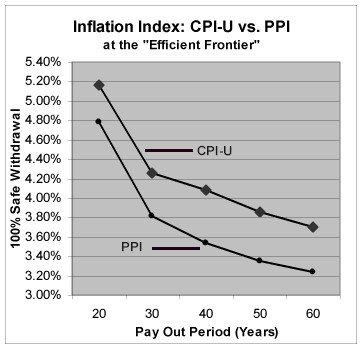Cut-Throat
Thinks s/he gets paid by the post
The 4% SWR rule of thumb is followed by a lot of retirees in their 60's. What is your opinion of a SWR for your 70's, 80's or 90's or in your 100's? - Assuming you don't want to leave any money on the table at the end?
Should it stay at 4%?
- Should it increase? By how much?
1% increase each decade? - 2%?
Should it decrease, because it's not as fun to spend anymore and you are saving for Long Term Care?
Should it stay at 4%?
- Should it increase? By how much?
1% increase each decade? - 2%?
Should it decrease, because it's not as fun to spend anymore and you are saving for Long Term Care?

